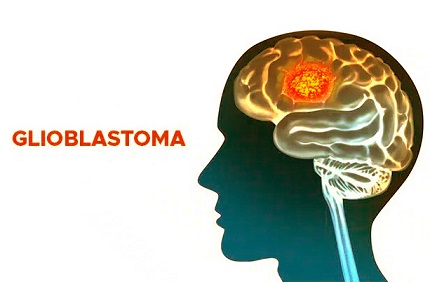Nikhil Prasad Fact checked by:Thailand Medical News Team Oct 28, 2024 1 year, 2 months, 2 days, 4 hours, 24 minutes ago
Medical News: Glioblastoma, an aggressive brain cancer, significantly reduces life expectancy, with most patients surviving only 12–15 months after diagnosis. This new research highlights why glioblastoma remains so hard to treat, revealing how the cancer manipulates the immune system. Researchers from the Fiona Elsey Cancer Research Institute and Federation University in Australia, along with Townsville Hospital, Murdoch Children’s Research Institute, and The Royal Melbourne Hospital, discovered that glioblastoma tumors disrupt the activity of T cells and natural killer (NK) cells - two of the immune system's most powerful weapons.
 Glioblastoma May Weaken Key Immune Cells
Key Findings on Immune Cell Suppression
Glioblastoma May Weaken Key Immune Cells
Key Findings on Immune Cell Suppression
This
Medical News report dives deep into how glioblastoma affects certain molecules and receptors on T cells and NK cells, hindering their ability to fight cancer cells. Scientists investigated proteins called TIM-3 and BAT3, finding a strong connection between high levels of TIM-3 and the exhaustion of T cells and NK cells in glioblastoma patients. This exhaustion, or ‘immune burnout,’ prevents these cells from effectively attacking cancer cells, allowing glioblastoma tumors to grow and spread.
Glioblastoma patients showed a significant overexpression of TIM-3, particularly on CD4+ and CD8+ T cells (types of T cells involved in immune response) and NK cells, compared to healthy individuals. Unlike the usual immune cells, glioblastoma patients’ cells could not properly activate. Even when researchers tried to stimulate these cells, the levels of TIM-3 remained unchanged, indicating a possible "lock" on these cells’ activity that stops them from doing their job.
The Role of TIM-3 and BAT3 in T Cell Exhaustion
The study suggests that TIM-3 and BAT3 play a crucial role in T cell exhaustion. BAT3, which usually associates with TIM-3 to regulate T cell activity, was found at much lower levels in glioblastoma patients. This drop in BAT3 levels leads to an increase in TIM-3 activity, pushing T cells into an inactive or exhausted state. In essence, the cells may recognize cancer cells but lack the energy to attack them.
Interestingly, TIM-3 was found to have a unique way of driving T cell dysfunction. TIM-3 binds to various molecules, like galectin-9 and HMGB1, which are elevated in glioblastoma. These molecules could push TIM-3 into overdrive, making T cells weaker and more likely to "give up" on attacking cancer cells.
Glioblastoma’s Effect on Natural Killer Cells
NK cells, often referred to as the immune system’s “first responders,” are also hindered by TIM-3 dysregulation in glioblastoma patients. NK cells from these patients showed reduced levels of BAT3 and were less able to produce essential molecules, like interferon-gamma (IFNγ), that activate other immune cells. This loss of IFNγ production significantly impacts the immune response, as it means NK cells are unable to signal other immune cells t
o join the fight against glioblastoma.
This impaired NK cell response may be due to an interaction between TIM-3 and BAT3. When BAT3 is absent, TIM-3 essentially “turns off” the NK cells, preventing them from destroying tumor cells. Moreover, TIM-3’s heightened presence in glioblastoma patients’ NK cells reduces their ability to activate other immune cells, causing a domino effect in weakening the body’s natural cancer defenses.
A Surprising Role of FOXO1 and BLIMP1
The study also examined how certain other proteins, FOXO1 and BLIMP1, might connect to TIM-3’s effects on immune cells. Interestingly, both FOXO1 and BLIMP1 showed low activity in glioblastoma patients, despite TIM-3’s overexpression. The research team suspects that while TIM-3 impacts cell activity, it may not act through FOXO1 and BLIMP1 as it does in other cancers. These proteins could still play a role, but further research is needed to clarify how they relate to TIM-3’s functions in glioblastoma.
Potential Treatment Implications
For patients and doctors, the study's findings suggest new directions in glioblastoma treatment. Currently, many therapies targeting immune checkpoints - molecules that help control immune responses - are ineffective in glioblastoma cases. This could be because these treatments focus on proteins like PD-1, which aren’t as active in glioblastoma as TIM-3.
Since TIM-3 seems to play a central role in suppressing immune activity in glioblastoma, targeting it directly may prove more beneficial than other approaches. Drugs or therapies designed to block TIM-3 or restore BAT3 levels could potentially reinvigorate T cells and NK cells, allowing them to resume their cancer-fighting activities.
Conclusion
In summary, this research brings to light how glioblastoma disrupts the body’s immune response by overexpressing TIM-3, which weakens T cells and NK cells. Without BAT3’s regulatory influence, TIM-3 becomes overactive, leaving the immune system unable to properly respond to the tumor. By understanding this mechanism, scientists hope to develop treatments that target TIM-3, giving T cells and NK cells a fighting chance against glioblastoma.
The study findings were published in the peer-reviewed journal: Cells.
https://www.mdpi.com/2073-4409/13/21/1777
For the latest on Glioblastoma, keep on logging to Thailand
Medical News.
Read Also:
https://www.thailandmedical.news/news/napabucasin-shows-promise-for-glioblastoma
https://www.thailandmedical.news/news/natural-compounds-show-promise-as-adjuvants-for-glioblastoma
https://www.thailandmedical.news/news/new-hope-for-glioblastoma-treatment-orladeyo-shows-promise-in-reducing-cerebral-edema
https://www.thailandmedical.news/news/a-new-promising-treatment-protocol-for-aggressive-type-of-malignant-brain-tumor
https://www.thailandmedical.news/news/university-of-mississippi-study-shows-that-juice-of-the-cornelian-cherry-can-help-with-glioblastoma
https://www.thailandmedical.news/news/metformin-shows-potential-as-an-angiogenic-supplemental-adjuvant-for-glioblastoma-treatment
https://www.thailandmedical.news/news/overcoming-drug-resistance-in-glioblastoma-the-promise-of-pi3k-beta-inhibitors
https://www.thailandmedical.news/news/herbs-and-phytochemicals-bioactive-compounds-from-kiwiberry-found-to-be-useful-in-treating-glioblastoma
https://www.thailandmedical.news/news/breaking-texas-md-anderson-study-finds-that-covid-19-accelerates-brain-tumor-progression-and-possibly-causes-new-onset-glioblastomas
https://www.thailandmedical.news/news/breaking-covid-19-news-study-finds-that-covid-19-hospitalization-linked-to-elevated-glioblastoma-risk-a-type-of-aggressive-brain-cancer
https://www.thailandmedical.news/news/brain-cancer-study-shows-lumefantrine-enhances-current-protocol-to-treat-glioblastoma-multiforme-gbm
https://www.thailandmedical.news/news/new-combo-therapy-for-glioblastoma
